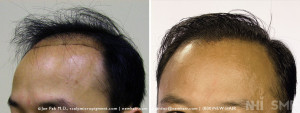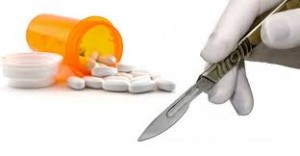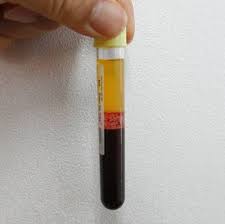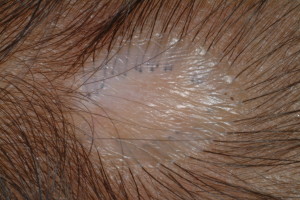Thank you for this blog. I have a question for you: is it worth getting a hair transplant without taking minoxidil or finasteride after? I’ve tried both, and react poorly. Minoxidil foam irritates my eyes, and I can’t use it; while finasteride just kills my libido.
I’m seriously considering a hair transplant but wondering if it’s all for naught if I can’t maintain it with these drugs. I’m about a Norwood 3V right now.
The decision to have hair transplant surgery has nothing to do with taking Propecia or Rogaine. You don’t have to take Propecia or Rogaine to have hair transplant surgery.
Some doctors may recommend that you take these medication but it is not mandatory.
Dear doctors. 3 hair transplants. Last one 3 weeks ago. All was perfect till 2 days ago. I washed my home floor by hand. I put some pressure and head down. I was sure it was OK as I read every where it was safe to do some movements or exercise 10 days after the operation. But, maybe be coincidence, few hours after it the crown area become red. But yesterday I also start feel pain. I bit not too much, but the receiver crown area is still red today.
I will go to see my surgeon tomorrow but your opinion is appreciated
1-24 days after fue it was safe just to wash the floor? Or I did wrong?
2- is it normal that redness get worst 24 days after fue? I had some redness before anyway, but not it got worst
3- every where I read, all doctors confirm that 10 days after HT grafts are safe. Can the redness effect graft grow?
4-do you recommend and product to reduce the redness?
I am posting this only because I receive similar emails daily from patients all around the world after they have their hair transplant surgery.
I want to emphasize I am honored to be sought out for my opinions on hair transplant issues. However, I also want to make it clear that BaldingBlog (or the Internet) is not a proper place to receive personalized post-surgical or medical care or advice. If there is an issue or concern after your hair transplant surgery, you need to call your doctor. Go see your doctor. If you cannot see your doctor call your doctor. If you cannot call your doctor email your doctor. It is also a courtesy to your doctor to keep him/her informed of your concerns or issues.
Washing your home floor by bending your head down seem like a normal activity and I do not know how it would relate to your surgery.
The redness may be normal but also can be a sign of early infection.
Just heard about platelet rich therapy for hair loss. When I “Googled” it, there was a lot of information. However, was wondering what you know of this treatment and if it does work for hair loss? They also say it’s good for wrinkles.
Many doctors offer PRP for hair loss. There are many research articles written about PRP treatment for hair loss. Just because there are scientific articles suggesting it may work does not mean it does work. However, PRP treatment is becoming more mainstream as more doctors offer it. It is basically a portion of your own blood separated and re-injected back to your body. PRP is being touted as the next miracle cure for all ailments from wrinkles to hair loss to joint pain. It is basically safe and likely not harmful.
PRP has been offered at our clinic in Seoul Korea for 2 years with equivocal results with respect to hair growth. As long as the consumers are well informed and realize it is not a “cure”, my opinion in PRP remains equivocal. We may start offering PRP in our Los Angeles office for those patients that want it. With time and good follow-up, those patients who want it can judge for themselves.
I noticed this slightly off patch of hair about mid way down my crown two or three months ago from a photo taken from behind.
My friend couldn’t tell if it was just my hair colour (I have mousy brown hair at the back and sides but it is naturally very highlighted around the front) or if there was an area of thinning.
My barber seems to think it is thinning.
I have not been under any chronic stress, I exercise and eat healthily. I don’t have any hairline recession that I can notice and otherwise my hair on top is long and thick. My normal haircut is a buzz cut on the back and sides.
Should I be worried? Any suggestions?
Thanks in advance for your help.
If you are concerned about hair loss, then you should see a doctor for an exam. The most common cause of hair loss in men is genetic male pattern balding. It has nothing to do with stress, diet, or health. It is genetics.
I ‘ve been taking propecia for the past 4 years but now I really wish to donate blood at least once in my lifetime.
As you know Finasteride users are not allowed to donate blood. According to one of your previous posts Finasteride is cleared from the blood stream within 48 hours.So I planned to stop taking propecia for a week, donate blood and resume taking the pill. A week seemed a reasonable
amount of time also because according to the information I found on the internet, DHT levels take a whole week to be
back to normal once you stop taking it.Unfortunately, however both on the Red Cross site and other sites, they state you need to wait at least 30 days after
the last dose of Finasteride.Why do I need to stop for a whole month if Finasteride is cleared from my blood stream within a few days? Wouldn’t say,
two weeks be safe enough?
You need to wait a month because that is the policy of the Red Cross. Two weeks may be “safe” but you have to follow the organization’s policy.
Link supplied here: https://www.drugtargetreview.com/7271/content-type/industry-news/malaria-vaccine-provides-hope-for-a-cure-for-cancer/?utm_medium=email&utm_campaign=DTR%20-%20Newsletter%2041%202015&utm_content=DTR%20-%20Newsletter%2041%202015+CID_38a158c3e7c3b704b824d159684943ed&utm_source=Email%20marketing&utm_term=armed%20malaria%20proteins%20can%20kill%20cancer%20cells
“A photo of a patient with Aplasia Cutis Congenita. No treatments are being explored, but the presentation was unique, and in our own peculiar way, quite beautiful. I’ve never seen this presentation before, with so many hairs visible through translucent skin.” (Dr. Bob Haber)
This shows an amazing view of the anatomy of normal skin in the translucent area
If the DHT levels are already low, why would then somebody suffer from alopecia? I.e., if you are suffering from male pattern baldness, isn’t that already an indicator your DHT levels are high?
Or, from another angle, what hope do people then with low DHT levels but MPB have to save their hair?
Many thanks for the clarification

High DHT levels are not the sole source of male pattern balding (MPB). The source of male pattern balding is in the person’s genes plus whatever DHT you have already in your body. As testosterone is metabolized into DHT and DHT is 40 times as powerful as testosterone, any DHT when combined with the genes for balding, will produce balding. Even when someone takes drugs like finasteride (Propecia), it only blocks 70% of the DHT in the hair follicle. So, this hormone plays a part but it probably is not the only factor in the genetic predisposition of male pattern balding. Think about it this way: If you have very high levels of DHT but do not have the genes for balding, then you won’t be bald.
We know that if a male does not have testicles (so he does not produce testostone and therefore no DHT), he will not bald even if he has the balding gene (see story about carrying the balding gene, one twin without testicles here: https://baldingblog.com/2006/07/27/testicles-and-balding/)
We also wrote about DHT before here: https://baldingblog.com/2014/08/22/if-dht-is-highest-as-a-young-adult-why-do-we-lose-hair-later-in-life/
You talk about masterplans… it seems to me that the only way a surgeon can transplant a hairline without it looking terrible in future is if a surgeon checks and finds that the area behind the transplant is never likely to go bald..
My question is whether when looking at someones hair… (e.g. a person in their early 30’s), under a microscope, would areas which are destined to eventually go bald always show up as miniaturised or is it possible that they will look completely normal but later in life still go bald?
I am just trying to understand how I hairline transplants can work long term, particularly for corner hairline recession.
Your questions is well founded on the principals of long term planning or a “Master Plan” when considering a hair transplant surgery. We do everything in our means to determine possible future hair loss and look for “patterns”. This includes a microscopic study of hairs (miniaturization study) as well as bulk measurements (measuring the quantity of hairs at different locations on the scalp). We also take into account family history as well as a personal hair loss history, patients age, and medication use (Propecia/Rogaine). Along with the experience of a doctor, we can give you a general assessment of possible “worst case” scenario or hair loss pattern to plan a possible surgery. Sometimes you cannot see the miniaturization readily. This does not mean that area may never go bald. Doctors cannot predict the future, but we do our best with the information given.
Many young men want to accelerate their beard growth and ask about it. It takes age (genetic triggers which occur in family lines) so if you want to find out when your beard will grow out, you need to find out when your father or grandfather started to grow their beard. Hormones should have kicked in nicely by the time a man reaches 18 but he must wait out his genetics as hormone alone are not responsible for the onset of beard grown. Beard transplants can be done when the young man is a bit older (over 25) if the beard has not grown in yet
This is taken from this most recent issue of the Scientific American, October 2015
Author Robert Stickgold discussed what happens if you do or don’t get enough sleep. I will outline some important points that stood out from the article:
1- The immune system: works better with a good night of sleep. When individuals were vaccinated and sleep deprived, they produced significantly less antibodies to vaccine virus than those who had a good night sleep. This suggests that the immune system does not work efficiently in a sleep deprived individual.
2- Appetite is stimulated when a person has less sleep because (a) an appetite stimulating hormone (ghrelin) increases in the blood and (b) the production of leptin which normally inhibits hunger, is decreased. The results are that adults who do not have a good nights sleep have a greater risk of obesity by 50% and children from 6-9 years old who sleep less than 10 hours a night, are 2 1/2 times more likely to be obese.
3- Diabetes: There is an association between sleep restriction and the development of type 2 diabetes. The management of sugar is impaired in sleep deprived adults as well.
4- The brain’s ability to recognize words in various situation is impaired with less sleep. We also need sleep to integrate what we learn every day into our memory.
5- Many psychiatric disorders including depression are more likely to occur in individuals who do not have a good night sleep.
6- Sleep promotes selective stabilization, strengthening, integration and analysis of new memories.
7- Important focused learning is improved with a good nights sleep. Things that you need to remember to take a test, for example, apply here.
8- The brain cleans house when you sleep, is more efficient in removing toxins during sleep than when you are awake.
9- A good nights sleep enhances the integration of past experiences with future performance.
10- The more complex our lives are, the more we need a good night’s sleep to manage these complexities.
Comment: Many people snore and their airways are obstructed, disallowing them to sleep uninterrupted through the night. These people will have many of the above stated problems with overall health. I have a smart watch, which I have worn at night to find out how much I move around restless while I sleep. I found that I lay still more 85% of the night while I slept. A nice function to test for sleep disturbance for those of you with a smart watch. Evaluate how long and how well you sleep.
Conclusion: If you are deprived of sleep, you are more than just being very tired when you wake – you may wind up sick more often, overweight, forgetful and depressed.
A good nights sleep varies between people, but it is plausible that a minimum of 7 hours of restful sleep for an adult is important for good body and brain health.









